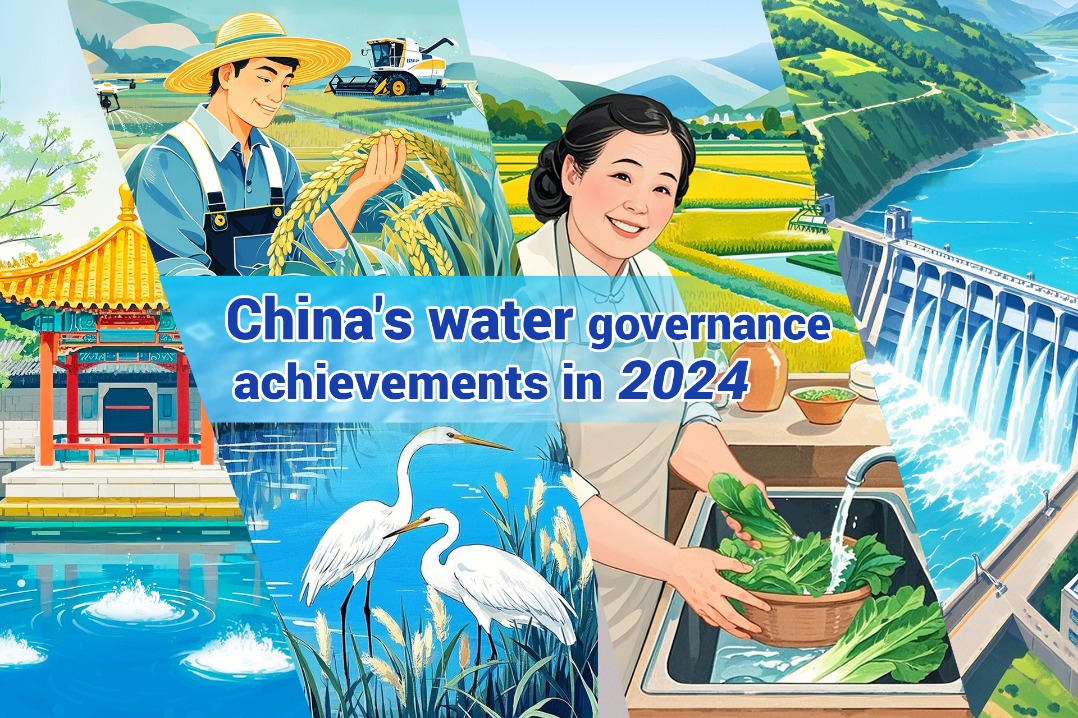Public in HK gets details of legal changes


Electoral improvements crucial to stability, attraction of political talent
Hong Kong government officials and political heavyweights recently explained the city's new law and recent policy changes on different platforms to help to make sure the local and international communities better comprehend them.
Since late April, Hong Kong Chief Executive Carrie Lam Cheng Yuet-ngor has hosted a 40-episode talk show, Get to Know the Election Committee Subsectors, to explain the ongoing electoral reform. The show airs on broadcaster RTHK and the internet.
Twelve guests have been invited to discuss how the electoral improvements would promote Hong Kong's development, including lawmakers, community groups' leaders, members of the legal, financial and business sectors and a youth representative.
"I've seen a few episodes of this series, and I think it's pretty good.… I can hear what leaders in different industries have to say about their professionals," a viewer with the username Elmer Doung wrote, adding that each episode is too short for in-depth discussions.
Earlier, the Standing Committee of the National People's Congress, China's top legislature, amended Annex l and Annex II to the Basic Law of the Hong Kong Special Administrative Region, the two annexes related to the city's electoral rules. The city's election amendment is under deliberation by the Legislative Council.
Lam told the Chinese-language magazine Outlook Weekly that the improved electoral system would curb political chaos like the city experienced and attract more capable and responsible individuals to politics. She added that the amendment will allow the city to put more effort into addressing long-standing livelihood problems like land and housing issues.
Vice-chairmen of the National Committee of the Chinese People's Political Consultative Conference, Tung Chee-hwa and Leung Chun-ying, also discussed the electoral revamp, the "one country, two systems" policy and the city's future with Outlook Weekly.
Tung said the electoral shake-up will break new ground in selecting and cultivating political talent. Under the new system, candidates need to win the voters' hearts through political achievements instead of radical slogans and grandstanding, Tung said.
Leung said the city's return to the motherland in 1997 was fundamentally different from the end of British rule in Singapore and India-Hong Kong is not a sovereign state.
Regarding foreign investors' concerns, Leung said he's confident about the global financial hub's further development, as long as threats to its political stability are wiped out and the city is proactively integrated into the nation's overall development.
Hong Kong's gross domestic product jumped 7.8 percent in real terms in the first quarter this year over a year earlier, compared with a drop of 2.8 percent in the fourth quarter of 2020, the Census and Statistics Department estimated on Monday.
Hong Kong Secretary for Security John Lee Ka-chiu in late April wrote an article for Bauhinia Magazine, a Hong Kong-based Chinese-language monthly magazine, touching on the significance of safeguarding national security and Hong Kong's challenges.
Lee warned that the city, which was rocked by street violence during the 2019 social unrest, still needs to prevent and curb terrorist acts and activities. He stressed that safeguarding national security and the city's stability is the responsibility of every resident.
- Data shows China's water governance achievements
- Notable progress in China's water management
- All-China Women's Federation sends much-needed relief supplies to Xizang
- More aftershocks expected following deadly Xizang earthquake
- HKSAR chief executive mourns victims of Xizang 6.8-magnitude quake
- Milestones in China's high-speed railway development





































